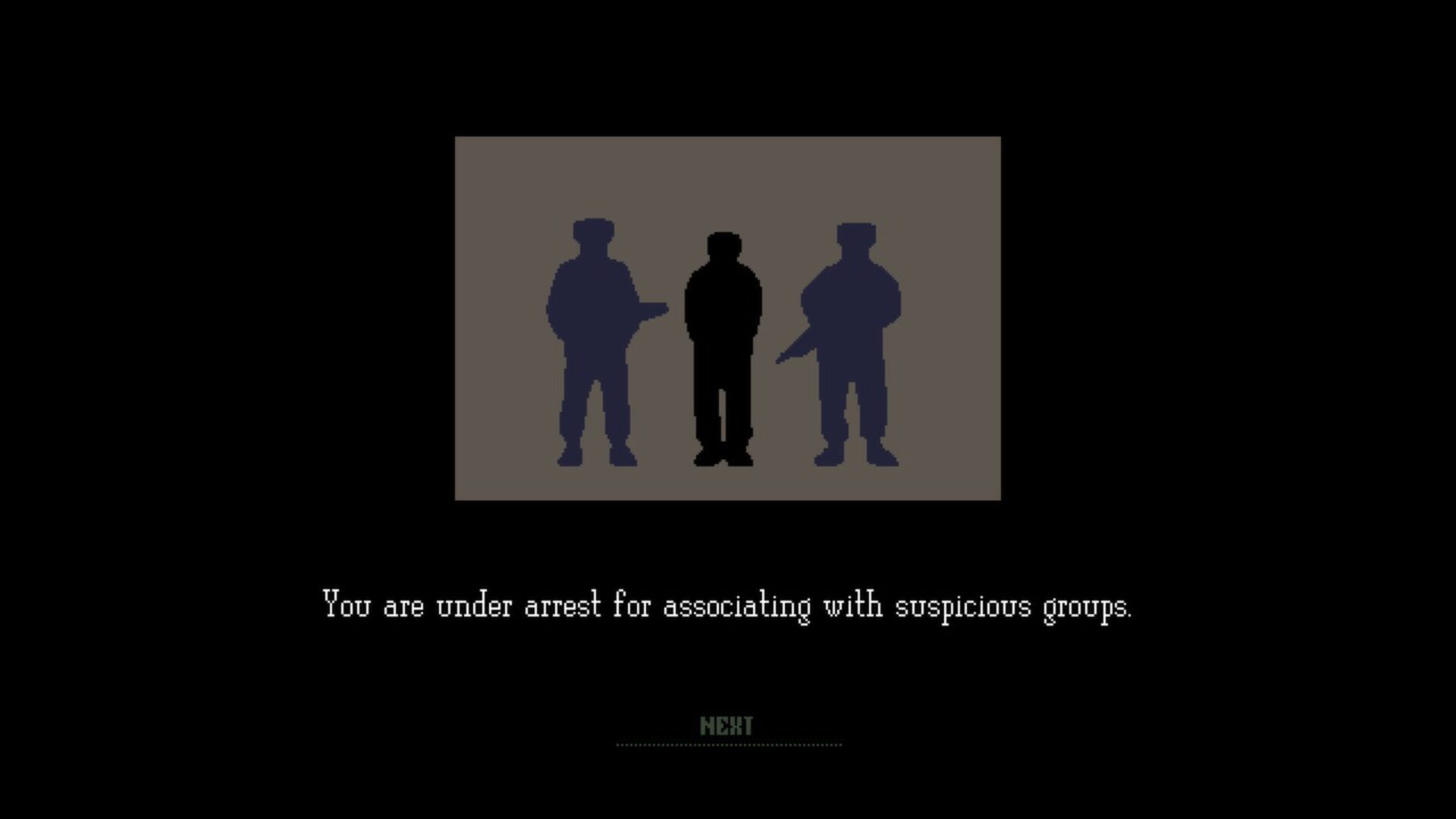We have come a long way since 2012. I’d like to think that for the most part, we’re all a little older and a little wiser. I often wonder if this a true of a certain Mr. Jones, who in 2012 wrote an article for The Guardian (a British newspaper) entitled “Sorry MoMA, video games are not art“, one of the most ignorant, snobbish, and confused pieces of work I have ever come across. Jones attempts to make the point that video games, for a number of reasons I’ll get to in a moment, cannot be considered an art form. Predictably, however, his arguments are pseudo-intellectual elitist tripe and his general attitude is remarkably juvenile. I can only hope he has come to appreciate the nuances of the debate in the intervening years.
Before digging into the meat of Jones’ argument, I want to address something he seems at great pains to point out early on in his “critique”. Having attended a talk by a philosopher who defended games as serious works of art (good on him), Jones has the gall to ask the question “What was a professor doing playing all these games?”. No, really. It saddens me that some people never get out of a secondary school mindset. This question is utterly irrelevant. Little more than a pathetic attempt to mock someone for doing something they enjoy. The implication being that games are for those of us without a university education.
It goes deeper than that though. This comment, as offhand as it may seem, betrays the prejudice at the heart of Jones’ denial of video games’ artistic status. His assumption is that games are for children, not professors. This is also evident in his description of games in general as “playgrounds”. Anyone involved in the medium knows this is a highly inaccurate description. I expect Mr. Jones feels pretty silly now that gaming is the largest and fastest-growing entertainment industry on Earth. Clearly, the appeal transcends age and education. People are not “too old, too intellectual and too dignified to really be playing at this stuff” you pretentious old fart.

We’ll come back to that “playground” comment, but for now, let’s focus on Jones’ first attempt to discredit a medium he clearly knows nothing about. Bear in mind that whereof one cannot speak, thereof one must remain silent. Here is Jones’ key insight. And I’ll remind you that this is a man who has judged the Turner Prize. “A work of art is one person’s reaction to life. Any definition of art that robs it of this inner response by a human creator is a worthless definition”. That sounds pretty good, doesn’t it? Maybe. But even if we ignore the fact that any attempt to define art this narrowly is doomed to failure, this simply isn’t right.
One person’s reaction to life? Sure, art can be that, but it is by no means limited to it. To claim such a thing would be utterly absurd. Why a person would need to have the intellectual capacity of a particularly small potato to think such a thing. If a piece of art can only be realised by an individual then many of the greatest films and songs of all time cease to be artistic endeavors. There is also the more complex argument that art necessarily exists as part of a tradition or movement, and so the notion of the individual artist is dissolved in influence and context. If art “has to be an act of personal imagination”, must it spring from entirely without the current zeitgeist or culture? Can we no longer reference, borrow from, or be inspired by other artists?

Is the Beatles classic Come Together not art? It was written by two men, and produced by a third. According to Jones’ definition (which if you haven’t realised yet, isn’t up to much), it cannot be considered art. The problem is even more apparent when we consider film. A typical picture or show is often written collaboratively and requires a huge number of actors, set designers, and cinematographers. Each of them brings their own perspective and voice to the larger work. Of course, there’s a director, but to claim that they are solely responsible for the final piece is downright disrespectful.
But say we put our fingers in our ears, hold our breath, and actually concede Jones’ definition. What then? In a twist, that anyone who knows anything about gaming could have seen coming, he torpedoes his own argument. If only individual expressions of personal imagination are art, then games are doing just fine. Papers Please, a dystopian paperwork simulator that explores what it means to be a good person in the face of oppressive authority. Developed by Lucas Pope. Thomas Was Alone, a delightfully minimalist meditation on friendship. Developed by Mike Bithell. Undertale, Cave Story, Braid, the list goes on and on. These are undeniably singular visions for which the authors have not “ceded… responsibility”.

There are so many culturally and artistically important solo-developed games I don’t know how Jones managed to miss them. Oh, of course, he knows literally nothing about the medium he is attempting to denigrate. That’s a good look for a supposed art critic. “Playground”. Remember that vicious slur on Jones’ part I mentioned earlier? Here we see its full ignorance laid bare. I don’t know what you’ve played Mr. Jones but not all games are like that. Maybe you should try a few more before passing such an all-encompassing judgement on them. It’s only your job.
That may seem thorough enough, but there’s a lot more nonsense to unpack here if you’ll indulge me. Jones also draws a tragically inept comparison between Pac-man and Picasso. Completely ignoring the fact that Pac-man is an early experimental example of a young and evolving medium, where Picasso’s works, while undeniably seminal in many aspects, also had thousands of years of tradition and influence behind them. It is not a good comparison and proves nothing. Just another cheap shot, dripping with the same old prejudice. Jones really needs to move beyond this stuffy, myopic focus on the classics and the masters if he ever wants to say anything of any worth.
Finally, we come to what I shall dub, the “Chess Argument”. In full, “Chess is a great game, but even the finest chess player in the world isn’t an artist. She is a chess player. Artistry may have gone into the design of the chess pieces. But the game of chess itself is not art nor does it generate art – it is just a game”. Again, this sounds intelligent. Sounds but isn’t. What Jones has done here is fail to see the nuance in language. We may refer to both chess and any of the titles I listed above as “games”, but this doesn’t mean they are each defined in absolute terms by their relation to one another. What is true of one is not necessarily true of the other. That much should be obvious.

It is true that Chess and Cave Story are both games in a loose sense. However, anyone with even a passing interest in reality can point out the key differences. One has a narrative structure, characters, themes, a message, and reasons to play beyond victory or mastery. To say that chess is only a game, and therefore so are video games is analogous to saying that because I am not an astronaut, my brother can’t be one either. We might share an important relationship to one another, but it does not impose an absolute uniformity of properties. We are once again dabbling in the utterly irrelevant. Chess not being art means literally nothing. As indeed does Jones’ entire article.
Before I conclude I wish to make a few things clear. While I disagree with Mr. Jones in the strongest possible terms, I bear him no ill will. I’m sure he’s a decent bloke. He is simply ignorant about a subject close to my heart. I criticise him only as a figurehead of a certain mode of thought that appears all too often in an attempt to reduce my hobby to either a waste of time or a distraction for children. Hence this article being nine years late to the punch. Games are art and they are for everyone. I sincerely hope we never lose sight of that.
- Gaming Critics & Critiques: Consistent Voices - January 1, 2022
- On Photography: Humans, The Elusive Subjects - November 21, 2021
- Why Gaming’s Attempt to Copy The Oscars Makes Me Nervous - October 20, 2021
